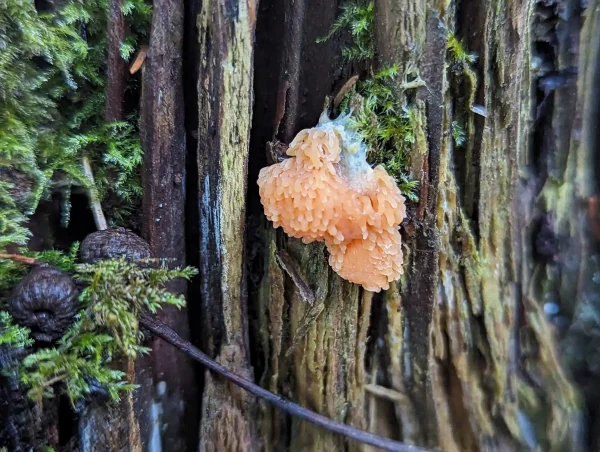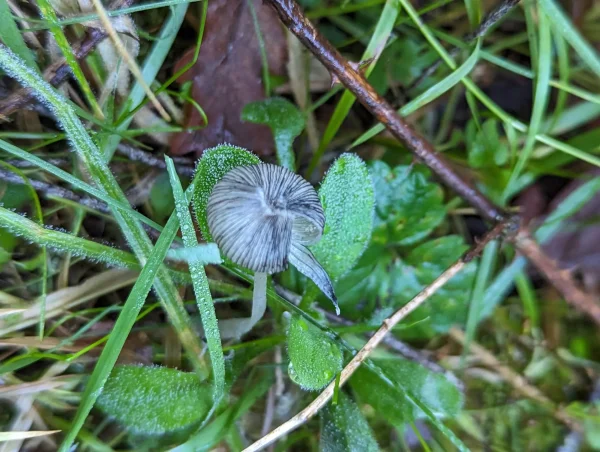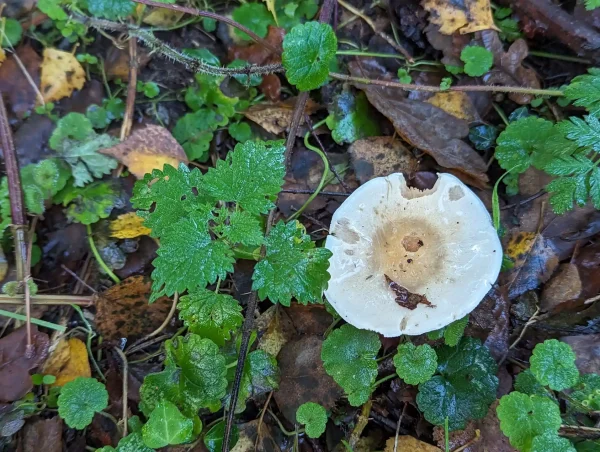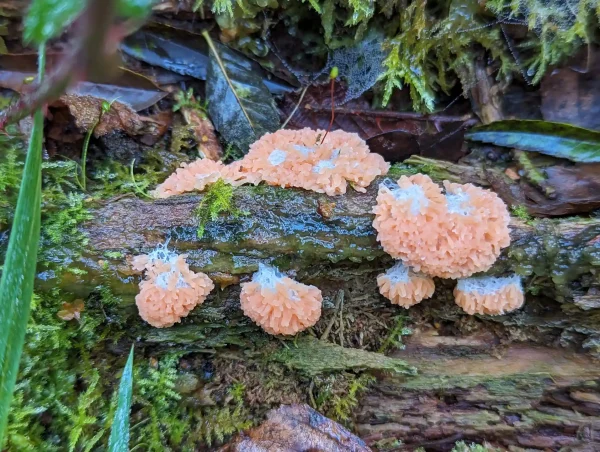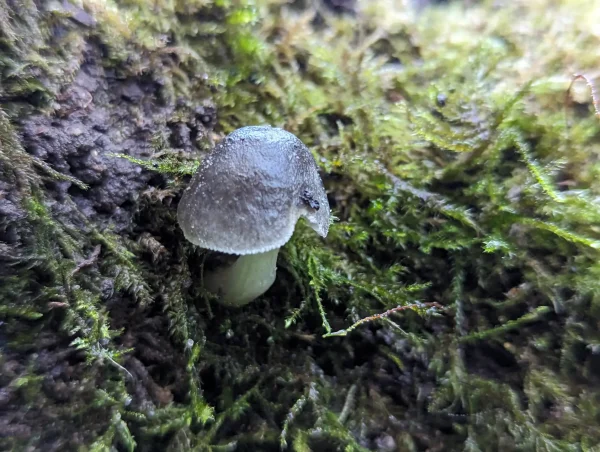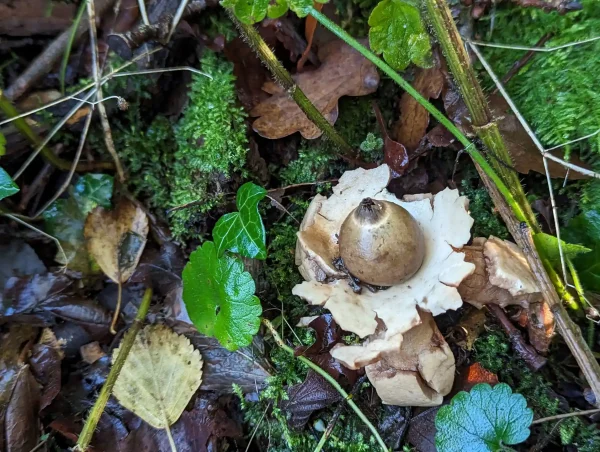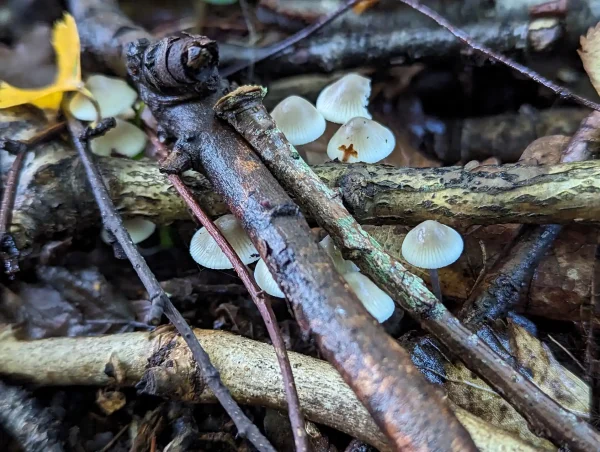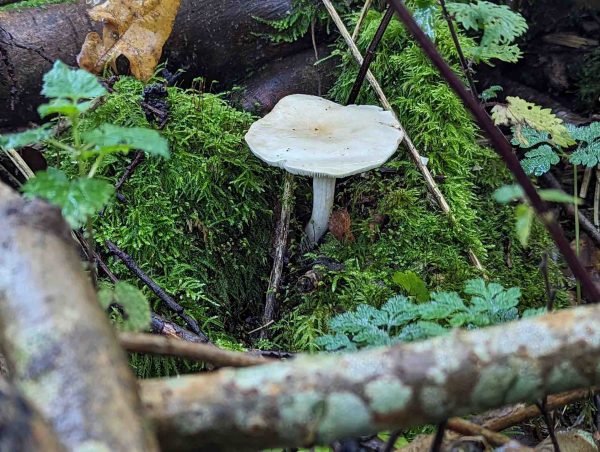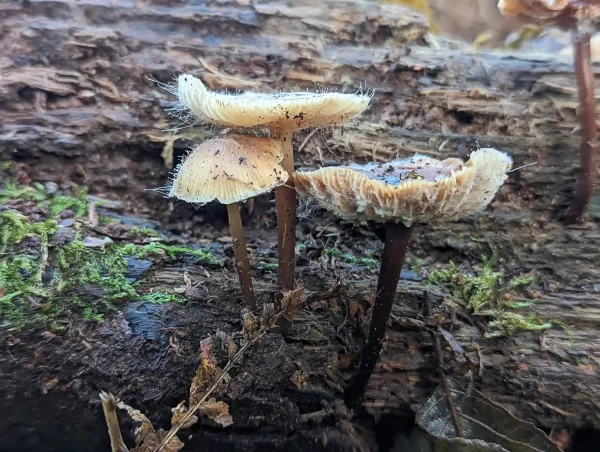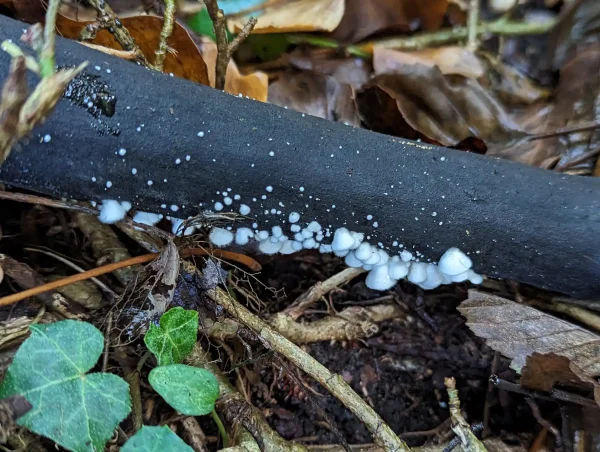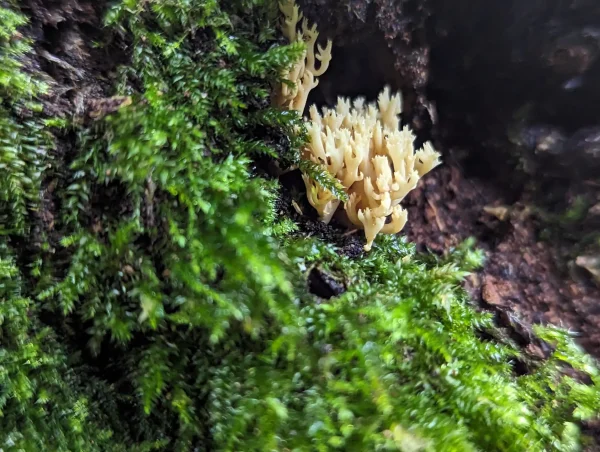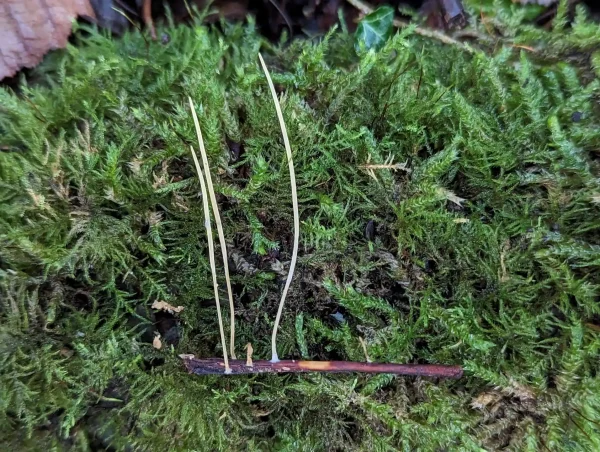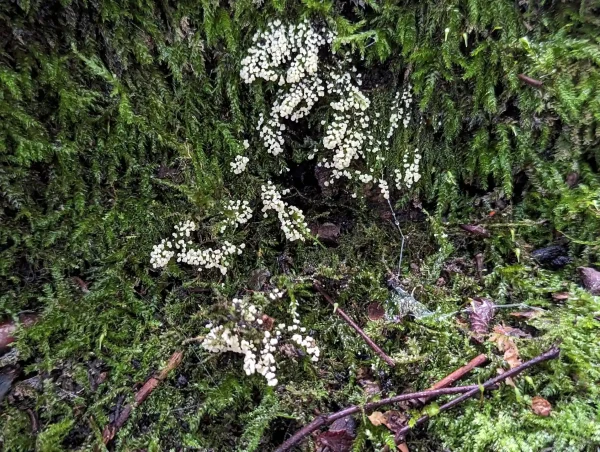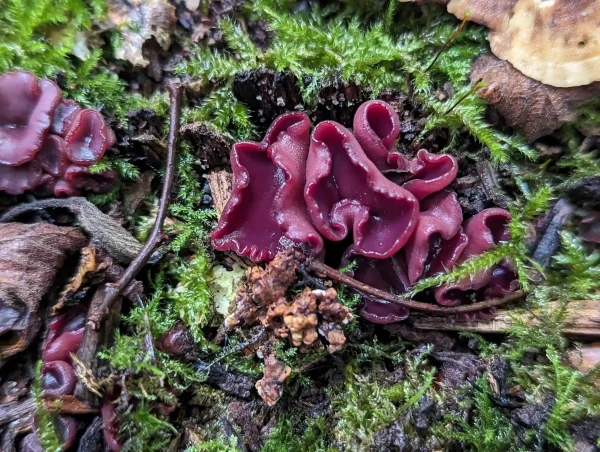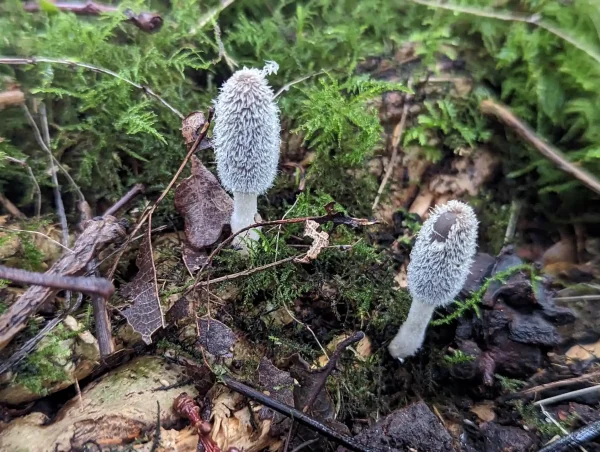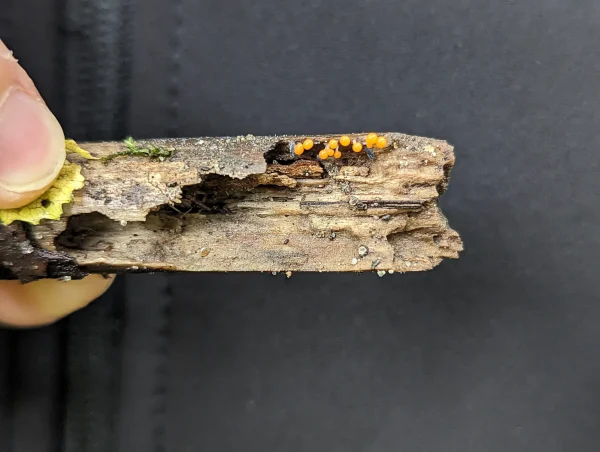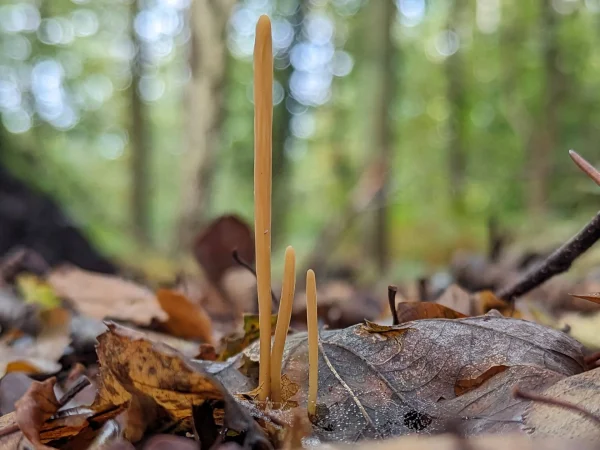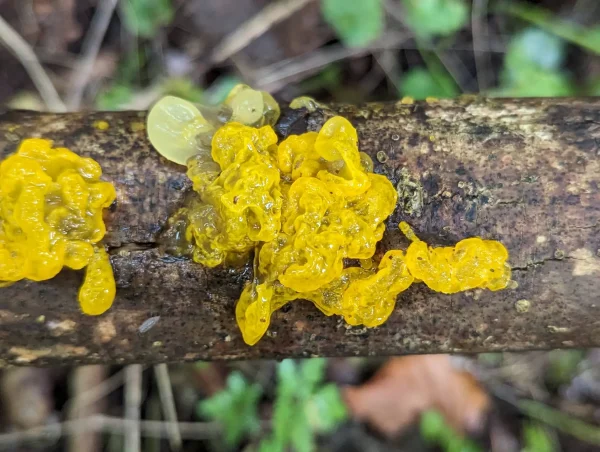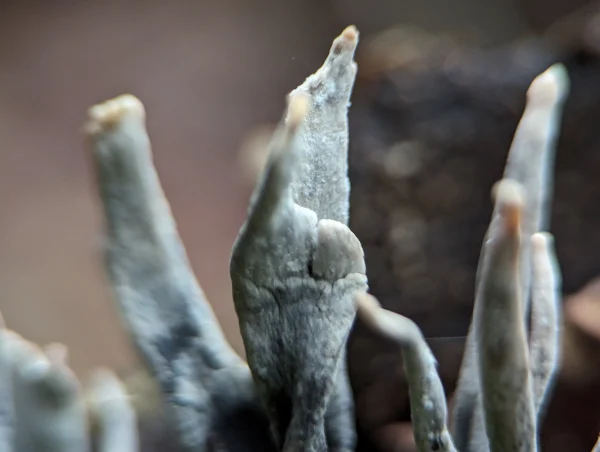Day 13
– 28 October 2023
Click on an image to see the fungus entry page
Today was cold with a chilly breeze and damp from the recent heavy rain, but it was bright and sunny.
ENTRANCE AREA
I saw another small clump of Tubifera ferruginosa (Fig. 13.0) by the entrance path where I had seen some previously on Day 8.
THE ZEN ZONE
The Mutinus caninus from previous weeks had diminished.
I spotted a Coprinopsis lagopus (Fig. 13.1) with its cap curled up in the grass near the edge of the Zen Zone.
Just beyond the roped off areas, I saw a scattered group of Hebeloma crustuliniforme (Fig. 13.2), which I saw more of on the Basecamp railway path.
BASECAMP AREA
In the Basecamp Loop, there was a larger colony of Tubifera ferruginosa (Fig. 13.3) on a mossy, rotting log.
The Tricholomopsis rutilans had completely disappeared.
At Basecamp, I saw the Scutellinia scutellata and remains of the Artomyces pyxidatus from previous weeks.
On the Basecamp railway path, I spotted two Hebeloma crustuliniforme.
The Psathyrella piluliformis from Day 12 was still around and I found a singular Parasola conopilea in the tall grass.
The Stereum hirsutum had revived and looked less dried out.
THE DELL
I found a slimy, fuscous Pluteus species on a rotting log (Fig. 13.4) and a similar looking specimen nearby.
Amidst some cut branches in The Dell, I found a singular Gaestrum triplex (Fig. 13.5).
I also spotted a group of a Mycena (Fig. 13.6), which may have been M. vitilis or M. polygramma.
The Rutstroemia firma from previous weeks now covered all the branches in the circle.
The Laccaria amethystina and Lactarius tabidus were still around.
I saw more Hebeloma crustuliniforme (Fig. 13.7) at the edges of The Dell.
SANDY GLADE AREA
On the stump where I previously saw Arcyria denudata, I found more immature white forms.
I also noticed a mat of Ceratiomyxa fruticulosa covering the underside of a log.
On a log by the side of the path running to the Fen Pond path, I found some old Gymnopus dryophilus (Fig. 13.8), covered in a pin mould.
On the Fen Trail Turnoff path, the Helvella crispa from previous weeks had diminished.
On the Fen Pond path, I spotted a small group of hairy crust fungi (Fig. 13.9) and some Ramaria stricta (Fig. 13.10).
The Gaestrum triplex were still around.
ENCLOSED AREA
Along the Drainage Channel path, I saw a small Tubifera ferruginosa (fig. 13.11).
In the Enclosed Area, I found the Clavulina coralloides, Tricholoma fulvum and Thelephora penicillata from previous weeks.
Near the entrance, there was a large group of Typhula juncea (Fig. 13.12).
Further in, I spotted an unidentified slime mould (Fig. 13.13) and a cluster of Ascocoryne sarcoides (Fig. 13.14) on a mossy stump.
YEW GROVE AREA
On the way to the Yew Grove, I spotted two immature Coprinopsis lagopus (Fig. 13.15) and a small group of pale Hemitrichia decipiens (Fig. 13.16).
Opposite the Yew Grove, the Cyathus striatus and Clavulina cinerea from previous weeks were still around.
OUTPOST AREA
At the path behind the Outpost Area, I found the tiny red fungi from Day 12 had grown larger.
TRAIL END AREA
I found Tyhpula fistulosa (Fig. 13.17) in the leaf litter off the path and Tremella mesenterica (Fig. 13.18) on a twig by the path.
The Apioperdon pyriforme had changed little, but the Lycoperdon perlatum had grown larger.
OTHER
All the Scleroderma citrinum, mainly in the Trail End Area, had opened up, resembling cup fungi.
Throughout the reserve, I saw Xylaria hypoxylon (Fig. 13.19).
